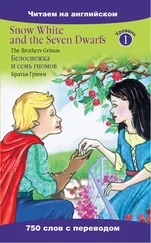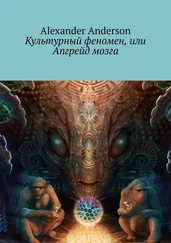***
With that flight began his downfall.
The regent in Babylon, an ambitious eunuch, exploited the Great King's defeat, proclaiming himself master of the city and taking the royal children hostage. On hearing this, Darius decided not to return home and fled toward the mountains. Confusion reigned over his lands. Many towns surrendered, and many regiments capitulated without a fight. I learned that Darius was a weak man and had been manipulated by his eunuchs, who could think only of bickering for power and increasing their own wealth. Constantly traveling between the splendors and marvels of Babylon, Suse, and Persepolis, he had known nothing of the famines and epidemics in the provinces. As if deaf and blind, he had slowly released his authority at the expense of his governors, and so, thanks to him, the decadence that had ravaged the West reached the East.
Poor peasants, undernourished soldiers, and local dignitaries who had never been respected at court rushed after me and showered me with gifts. I was hailed everywhere as a liberator, as the one who had conquered the tyrant, I was encouraged to march on Babylon and drive out the usurper.
The regent tried to negotiate for peace by sending me finery, caravans filled with Darius's treasure. He promised me other fabulous riches if I continued to pursue Darius without stopping at the gates of his city. I sent him a herald with my reply: if he recognized Alexander as his master, he would be under my protection, shielded from challenges and insurrections.
Three days' march from Babylon I was greeted by a procession of royal dignitaries with incense and music. We signed a secret treaty: the regent would proclaim me master of Babylon, and I would entrust the running of the city to him.
On the horizon I could see the bronze gates piercing the very skies and stopping birds in flight. They opened before Alexander with the servile enthusiasm of a great courtesan spreading her legs for her richest client. Dressed as a lowly soldier, I watched with satisfaction as one of my look-alikes stepped into that ancient city crowned with golden laurels and dressed in my gold armor with scarlet straps. He was hoisted onto a cart and drawn triumphantly down the widest avenue in the world, waving proudly and indulgently to the prostrations of the Chaldeans and Persians.
The wind blew, and the hanging gardens scattered a shower of petals.
***
The tower of Babel had disappeared; Babylon had become that Tower of Babel, carrying off its inhabitants, its palaces and gardens, its streets and canals, in a giant spiral toward the heavens. Wide avenues wound round networks of sinuous little streets. To make the streets more passable the Babylonians uprooted trees and bushes, replanting them on roofs and terraces high up on pillars. But still carts, traps, camels, and horses jostled for space. The streets became blocked and then cleared for no apparent reason. Shops, restaurants, smoke houses, taverns, and baths kept their doors open day and night. The crowds drifted in and out; they went up steps into high-perched houses decorated with balustrades, or down underground where snatches of incantatory music wafted from dark rooms lined with cushions and lit by lanterns. The rustle of clothing and clacking of shoes mingled with clinking glasses, the clip-clop of horses' hooves, the hubbub of conversation, and the bustle of waking households. The high, painted city walls resonated with the echoes of all this never-ending life, emitting a muffled buzz that grew louder with every new dawn.
Temples dedicated to the gods occupied street corners: people from all over the world, dressed in every kind of costume, went there to pray in every language. Each wore the perfume of his or her country. Every variety of incense from every land blended with every smell of every different style of cooking. Newborns were greeted according to a thousand different customs, and the dead were left naked or shrouded, burned or mummified, buried or left to scavengers. Each individual went to heaven or to the shades on horseback or by boat, in chains or on beating wings.
The roar and bustle of the greatest metropolis on earth stopped at the foot of the City of the King. This town within a town was crammed with administrators' palaces and ministers' residences. Built with blocks of beaten earth and painted inside and out, they shamelessly displayed their splendor. As the sun set, an entire population of plants and animals came to life as if trying to break away from those facades: monkeys squabbled along the walls; parrots called from the rooftops; dogs ran alongside leopards; bees plundered roses and carnations. A bird with the head of a vulture and a long shining tail had pride of place on the pediments. I learned that it was called the phoenix. Every hundred thousand years it died in flames and was reborn from the ashes.
What secret shame I felt as I cast my eye over the conquerors and the conquered! On the one side, Macedonians and Greeks, their heads bare, their linen tunics leaving their arms, shoulders and legs for all to see, their leather sandals revealing hairy feet and filthy black toenails. On the other, Persian administrators in turbans, wearing rich brocade all the way down to their shoes which were embroidered with gold. They each held a different flower in their hands as a symbol of their responsibilities. They were followed by eunuchs, imperial slaves with shaven heads, who wore vests over their short tunics and ballooning pants threaded with gold. An evolved civilization clothes its people; it covers their flesh, ties their hair, and decks out their limbs with precious stones to distinguish them from animals. I who had conquered
Darius must have looked to the Persians like the leader of a band of savages set loose in the Orient.
In Pella life had only five colors: green like the fields, yellow like wood, white like houses, blue like the sea, and black like the earth. When the regent opened the gates to the citadel of pleasure, I was accosted by a profusion of unfamiliar colors carried on a blend of subtle perfumes.
The eunuch who had sold Babylon to Alexander smiled and bowed. He walked backward before me and called for a bevy of castrated young musicians to sing the praises of my victory. His head was bare, and he wore a heavy amber necklace. His triple chin quivered, and his eyes-one tawny and one blue-studied me surreptitiously. He was holding a bracelet, nervously rolling the ruby and emerald beads in his fat fingers. He led me straight to the bedchamber of his former master, offering me his bed, his slaves, and his gynaeceum.
***
In the heart of the city of Babylon was the City of the King. In the heart of the City of the King was the City of Pleasure. At its highest point, up in the heavens, was my bedchamber.
The warriors' screams and the clash of arms ceased to haunt my ears. I heard only birdsong and the sibilant murmur of fountains. The most beautiful garden in the world stretched out beneath my arched windows, wiping away sorrows of the past and concerns for the future. The Euphrates snaked through meadows dotted with roses, violets, and carnations, and edged with orange trees and jasmine, and it spilled its ripples peacefully into ponds covered with water lilies.
I lay on the bed and forgot the incandescent sun, the cruel wind, the endless marching. I swam in a sea of cushions, heaped around me, soft and giving. A curtain the size of a tent was draped over my bed, and through it I glimpsed the cupola-shaped ceiling-a clear demonstration of the Persians' superiority in science and architecture. There were no pillars or support beams in that vast room: the substantial roof was held up by the six walls thanks to an ingenious distribution of its weight, calculated in a way the Greeks had not mastered. The frescoes were lit by candelabras that never went out. At the tops of the walls flowers blossomed between geometrical patterns. At eye level there were panels covered with a fine layer of gold, and Darius himself was represented as a handsome young man in his royal turban. A sequence of scenes from his daily life were depicted: reading, reciting poetry, chasing butterflies, watching monkeys dance, riding on an elephant, picnicking, bathing… and even in his bath the fallen king wore his turban. Loving embraces followed on from languorous walks, and poems in calligraphy accompanied the images. Beneath the panels were mosaics depicting a limpid spring edged with exotic vegetation. Among the countless faces of his beautiful and sensual young concubines, I noticed a favorite-small with very white skin and huge eyes over a small mouth-who featured in all the scenes of pleasure.
Читать дальше












